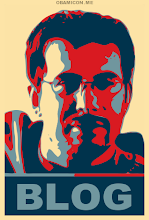Is it time to rethink the A’s glory days from 1988-1990? It is horrific to fathom that one of the greatest teams in the past 30 years and not to mention, one of my most cherished childhood memories--that of celebrating a World Championship in 1989, were tainted.
Jose Canseco has publicly accused his former Bash Brother, Mark McGwire of steroid use during an era where the A’s won three consecutive American League pennants and one World Series championship. These accomplishments are bogus.
The two most feared hitters in baseball at the time, arguably, did more to intimidate and win games than any other part of those teams. Might this have been a reason why so many other teams hated the A’s. What observers thought was jealous at their winning ways may have actually been contempt for their cheating ways.
The most interesting part of this burgeoning scandal is how high it will reach into the hierarchy of baseball. Canseco and McGwire were subordinates to manager, Tony LaRussa and general manager, Sandy Alderson.
LaRussa went on to manage the St. Louis Cardinals and has continued to add more to his resume that universally hails him as one of the most innovative and highly credible figures in baseball.
Alderson left the A’s to work as a vice president in the commissioners’ office.
LaRussa and Alderson lead us to believe they knew nothing of Canseco and McGwire’s cheating. LaRussa is quoted as saying that there were a few players on those A’s teams that he knew were using steroids. Is it fair to question LaRussa’s credibility in defending McGwire? Who were these players then? Dave Henderson? Felix Jose? Dave Parker? Parker was also involved in baseball’s others scandal, the cocaine problems of the early 80s.
In Alderson, we have a specific officer in baseball’s front office that is truly complicit in the steroid boom of the 1990s. Looking back now, what was Alderson’s real reason in the dubious trade of Canseco in 1992? It was very odd that a team that was leading their division and poised for the playoffs proceeded to trade one of their best players, thereby completely changing the makeup of a successful team with a month to go in the season. Did Alderson know something about Canseco then or did he think an equally volatile Ruben Sierra and two serviceable pitchers (Bobby Witt and Jeff Parrett) would put the A’s over the top?
Whether you watched the 1989 A’s with passing interest or popped champagne in celebration, other aspects of those teams need to be viewed differently, now.
The A’s pitching in those days were a haven for rejuvenating flagging careers or ones that never succeeded. Most notably it was because of one pitch--the split-finger fastball. Roger Craig, the future manager of the San Francisco Giants brought the pitch with him to the Giants from Detroit in 1986. The pitch that looked like a fastball but suddenly dipped just as it reached the plate revolutionized the game. After a few years, a backlash against the pitch grew. Some opposing players and managers openly speculated whether there was more to the pitch than splitting two fingers far apart. Successful split-finger pitchers like Jack Morris, Rick Reuschel, Don Robinson, Mike Scott and Dave Stewart were routinely accused of illegally scuffing the baseball for more movement.
Is it plausible to wonder whether the A’s pitchers were also cheating? Pitchers like Stewart, Gene Nelson, Rick Honeycutt, Mike Moore, Storm Davis, Scott Sanderson and Hall of Famer, Dennis Eckersley all came to the A’s during this period with careers like that never quite took off or were in serious decline. Did this controversial pitch constitute cheating or a very novel and fair approach by a good pitching coach and manager?
LaRussa, himself, posed the question yesterday when he wondered whether Canseco’s allegations would taint the exploits of those teams. Maybe the one with the most to lose in all of this is people like LaRussa. In the coming weeks and months, will we begin to shift the prevailing wisdom of LaRussa from the law-educated revolutionary manager to the meandering enabler who allowed winning come before unethical behavior under his watch.
Monday, February 14, 2005
Subscribe to:
Post Comments (Atom)



No comments:
Post a Comment